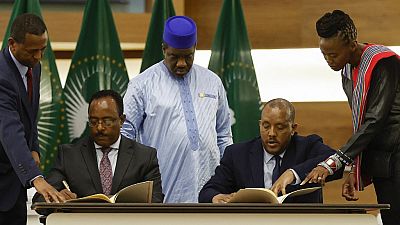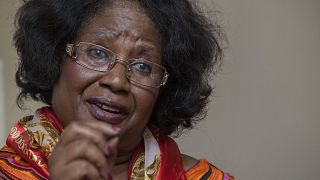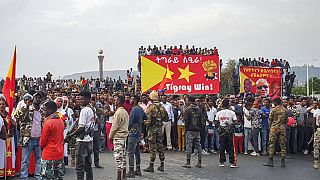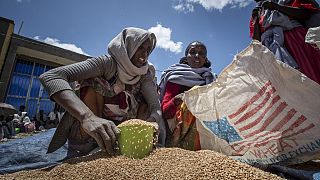Ethiopia
One year after an agreement brought peace to the Tigray region, fighting and atrocities against civilians continue in northern Ethiopia, Human Rights Watch (HRW) deplored on Thursday, calling on the international community not to "look the other way".
On 2 November 2022, the Ethiopian federal government and the Tigray authorities, who had rebelled two years earlier, put an end in Pretoria to one of the deadliest conflicts on the planet, with several hundred thousand deaths and countless atrocities.
"The governments supporting the fragile truce in Ethiopia cannot look the other way while the crises intensify" in the country, and "civilians continue to be the main victims of atrocities", said HRW Africa Director Laetitia Bader in a statement.
The agreement has led to "enormous progress" in Tigray - an end to the fighting, the return of humanitarian aid and the gradual restoration of basic services - but "the fighting has intensified in other regions of the country, where the former perpetrators of abuses are repeating the same abuses with impunity", Ms Bader continued.
The Pretoria agreement broke the alliance between the federal government and the Amhara forces that had supported it in Tigray. Tensions degenerated into open conflict in the Amhara region in April, following an attempt by the federal army to disarm them.
A state of emergency was declared in August and the conflict has been accompanied by "hundreds of civilian casualties, mass arrests of Amhara and damage to civilian infrastructure", notes HRW.
The Ethiopian authorities are resorting to the same "repressive tactics" used during the conflict in Tigray, restricting access to journalists and observers and blocking the Internet, while access to the mobile network is intermittent in the combat zones, continues the human rights NGO.In Tigray, Eritrean troops - who intervened in support of the Ethiopian army and are still present in border areas - continue to "commit murder, sexual violence, kidnapping and looting, and obstruct humanitarian aid", according to HRW.
In the western part of the region, which they refuse to evacuate despite the agreement, the Amhara forces - including the Fano militias - are "continuing a campaign of ethnic cleansing by forcibly expelling Tigrayans" from this area, which is "largely inaccessible" to humanitarian actors, HRW continues.
The Pretoria agreement "lacks details on the repression of the crimes committed, in particular on the type of investigation mechanisms with a view to future prosecutions", deplores HRW, which is sceptical about the "transitional justice" process promised by Addis Ababa.
The NGO also deplores the "inaction" of the member states of the UN Human Rights Council, which led in September to the end of the mandate of a UN Commission of Inquiry, "despite the clear need to maintain independent investigations and international oversight".














01:14
Boeing reaches settlement with man who lost entire family in 737 MAX Crash
Go to video
Ruto's $9M mega church sparks outrage amid Kenya's crisis
Go to video
“I can’t do nuttin’ for ya man”, Nigerian Minister quotes Flavour Flav in rejection of Trump policy
02:35
Central African Republic's major rebel groups to disarm, dissolve
Go to video
U.S. slashes visa duration for some African nationals amid policy shift
Go to video
Nigeria snubbed at White House summit, opposition blames Tinubu